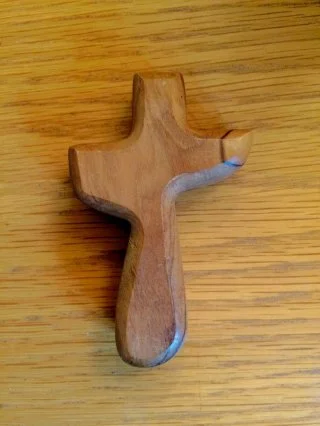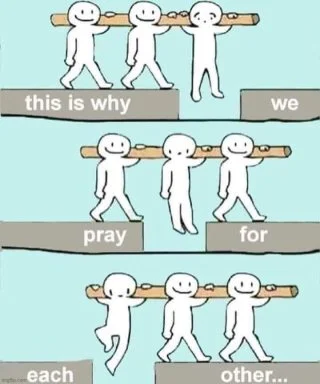For Christians, perhaps two of the most pay attention words we can hear are, "Jesus said..." And the distilled essence of Jesus' teaching begins with, "And he opened his mouth and taught them, saying..."
Jesus said: “For I was hungry and you gave me something to eat, I was thirsty and you gave me something to drink, I was a stranger and you invited me in, I needed clothes and you clothed me, I was sick and you looked after me, I was in prison and you came to visit me. The King will reply, ‘Truly I tell you, whatever you did for one of the least of these brothers and sisters of mine, you did for me.” (Matthew 25.31-46)
To see the presence of Jesus in the face of those who are vulnerable, powerless and in need of support, is a fundamental principle in following and serving Jesus. Full stop.
Jesus said: “Love the Lord your God with all your heart and with all your soul and with all your mind.’ This is the first and greatest commandment. And the second is like it: ‘Love your neighbor as yourself.’ All the Law and the Prophets hang on these two commandments.” (Matthew 22.37-38)
We don’t need detailed rules. Just two barcodes of discipleship – Love God with everything we are and have and love our neighbor no less than we love ourselves. Simple. But not cheap. Costly love never is. “Love so amazing, so divine, demands…”
Jesus said: “If anyone would come after me, he must deny himself and take up his cross daily and follow me. For whoever wants to save his life will lose it, but whoever loses his life for me will find it.” (Luke 9.23-24)
Daily. Luke is the Evangelist who remembers that word. Discipleship is an everyday commitment. That’s good news for when we fail, make mistakes or want to start again. Life isn’t something we cling to, but something we give ourselves to—the best deal in town is to give ourselves in service to God and neighbor.
Grace and peace,
Anita Sorenson
Pastor for Spiritual Formation


